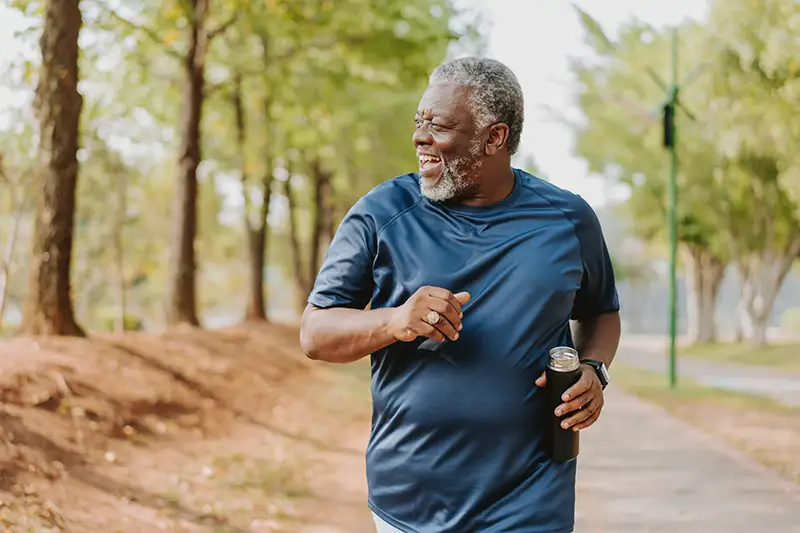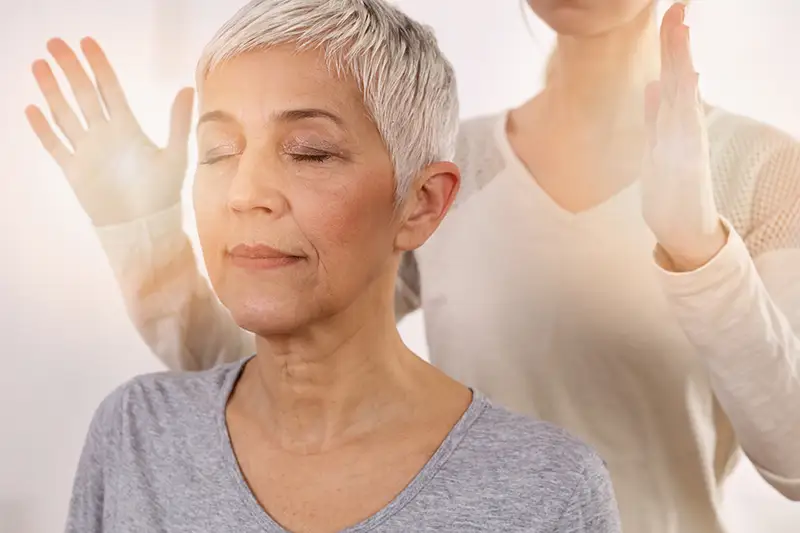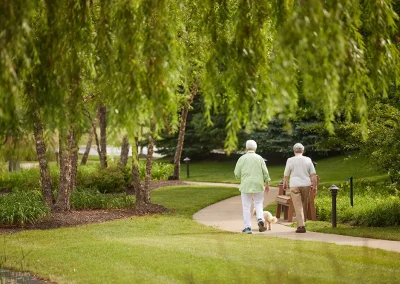How Can Holistic Senior Care Benefit You?
As you age, having a plan for senior care can give you peace of mind for your future health care needs. One approach growing in popularity is holistic senior care, which focuses on supporting the well-being of the whole person—body, mind, and spirit. This comprehensive care method looks beyond just treating symptoms and seeks to address the root causes of health issues through prevention, self-care, and alternative therapies.
Holistic care incorporates a variety of techniques, such as alternative therapies, mindfulness practices, and personalized wellness strategies, to provide a more balanced and comprehensive approach to health.
By embracing holistic care, seniors can enhance their physical, mental, and spiritual well-being while potentially reducing reliance on medications. Let’s explore how this mind-body-spirit approach can benefit you.
Physical Well-Being
Incorporating holistic care practices into your routine supports prevention and self-care, reducing the need for medication to treat symptoms and leading to improved quality of life. Take a look at the following methods:
Regular Massage Therapy
For seniors, maintaining physical health often means addressing common concerns like chronic pain, joint stiffness, and reduced mobility. Massage therapy, for example, is an effective way to manage these physical symptoms. It can reduce muscle tension, alleviate pain from arthritis, and improve circulation, which is essential for seniors who may be more sedentary. Massage also promotes relaxation and lowers blood pressure, helping seniors manage stress.
The Benefits of Acupressure
Acupressure, a practice rooted in traditional Chinese medicine, uses finger pressure on specific points of the body to promote healing. This therapy can relieve various conditions, from headaches and insomnia to digestive issues and fatigue. Many seniors find acupressure beneficial in improving sleep quality, enhancing energy levels, and reducing the need for over-the-counter pain medications.

The Importance of Physical Activity
In addition to these therapies, physical activity is another key component of holistic care. Activities like walking, yoga, tai chi or swimming are gentle on the joints but still effective for maintaining strength, flexibility, and cardiovascular health. Combined with a nutritious diet tailored to the individual’s needs—whether that means focusing on anti-inflammatory foods or boosting protein intake for muscle maintenance—holistic senior care helps seniors manage their physical health in a proactive, personalized way.
Mental Well-Being
Holistic senior care emphasizes mental well-being by fostering cognitive health, emotional resilience, and stress relief. This approach integrates a variety of therapies—such as music therapy, mental stimulation, and social connections—to promote a positive state of mind and emotional stability.
Cognitive Health Through Music Therapy
Cognitive health is a key concern for aging adults, and holistic care can help delay or mitigate the effects of cognitive decline. Music therapy, for instance, is especially beneficial for seniors with Alzheimer’s disease or other forms of dementia.
Listening to familiar music can evoke positive memories, help individuals reconnect with their emotions, and improve their ability to communicate. Music therapy has also been shown to reduce anxiety and depression, making it a valuable tool for promoting mental health.
Mental Stimulation and Cognitive Function
Mental stimulation is another critical element of maintaining cognitive function. Activities like solving puzzles, playing card games, learning new skills or even reading and writing help keep the brain active.
These forms of mental exercise can improve memory, problem-solving skills, and concentration. In senior living communities, social activities such as group discussions, art classes or brain games encourage seniors to engage with others while stimulating their minds.
The Importance of Social Connections
Social connections play a significant role in mental health. Loneliness and isolation are common issues among older adults, and holistic care places an emphasis on nurturing these important social bonds.
Community-based activities and social engagement can prevent depression, anxiety, and cognitive decline. Group activities, volunteering, and familial interactions also support mental well-being by promoting a sense of belonging and purpose.
Spiritual Well-Being
For many seniors, spiritual well-being is just as important as physical and mental health. Holistic senior care recognizes this by addressing spiritual needs through practices that provide a sense of purpose, connection, and inner peace. While spiritual well-being is a deeply personal experience, it can be nurtured in a variety of ways, from mindfulness and meditation to faith-based practices or simply spending time in nature.
Aromatherapy for Spiritual Well-Being
Aromatherapy uses essential oils derived from plants to create calming, energizing or healing effects. For seniors experiencing stress, anxiety or insomnia, aromatherapy can be used to create a soothing environment. Lavender and chamomile oils, for example, are often used to promote relaxation and better sleep, while eucalyptus and peppermint can energize and invigorate. Aromatherapy provides a simple yet effective way to enhance emotional balance and spiritual calm.

Pet Therapy As Emotional Support
Pet therapy is another holistic practice that can fulfill spiritual needs. Many seniors find joy and comfort in the companionship of animals. Whether through a pet or visiting therapy animals, spending time with animals has been shown to reduce stress, lower blood pressure, and improve emotional health. For seniors who may feel lonely or disconnected, the presence of an animal can offer emotional support, foster connection, and create a sense of purpose.
Meditation and Mindfulness for Inner Peace
Meditation and mindfulness are integral to spiritual well-being. Practices such as guided meditation or deep breathing exercises can reduce anxiety, help manage chronic pain, and bring a sense of peace and clarity. Seniors who meditate regularly may experience lower levels of stress, improved emotional health, and a stronger connection to their inner selves.
Faith-Based Practices
For some, spiritual well-being may be supported through faith-based activities, such as praying, attending religious services or engaging in community service. These activities provide a sense of purpose and connection to a higher power or collective cause, fostering inner peace and fulfillment.
Embrace Comprehensive Wellness at Sedgebrook
Holistic senior care emphasizes the mind-body-spirit connection, providing personalized care that treats the whole person. By incorporating practices like massage, music, pet therapy, aromatherapy, and mindfulness into your wellness routine, you can address the root causes of health issues while reducing reliance on medications.
This comprehensive care approach can enhance cognitive function, strengthen social connections, and support your physical, mental, and spiritual well-being.
At Sedgebrook, we believe in this holistic approach to senior care. Our wellness services are designed to nurture all aspects of your well-being, ensuring you can enjoy a healthier, more balanced life in your golden years. Experience the difference holistic care can make. Contact us today at (847) 780-9750 to learn more about our comprehensive wellness offerings and how we can help you live your best life.




